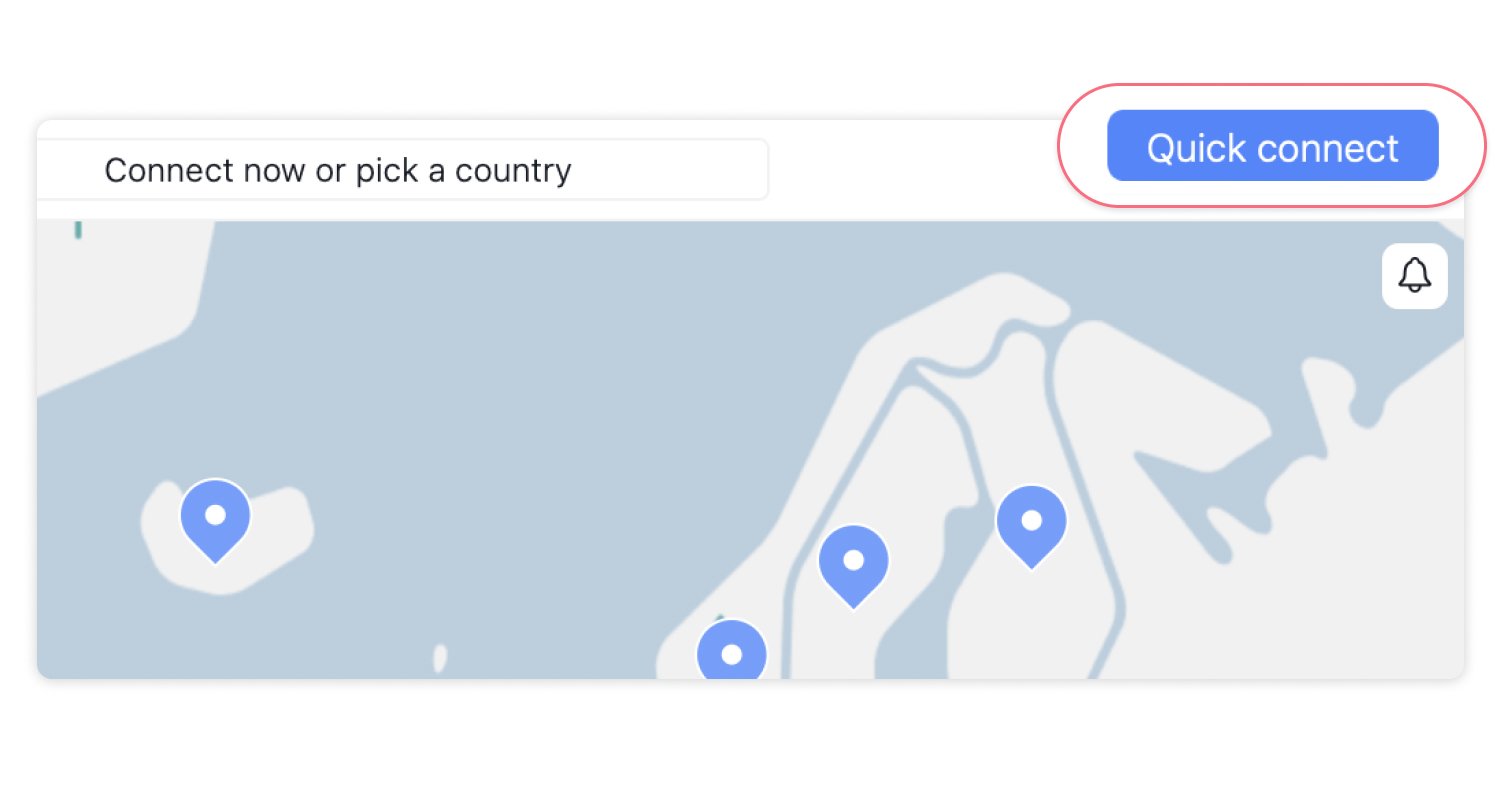How to use a VPN in China in 2024
The Great Firewall of China restricts users from accessing the free and open internet. People can use a virtual private network (VPN) to browse more freely, but few actually work in China, making the best VPN for China hard to find. This post will cover why you should use VPNs in China, whether you can get in trouble for using one, and how to use them.
Contents
Why you need a VPN in China
In China, the internet is controlled by the government. The Great Firewall regulates inbound and outbound Internet traffic between China and the rest of the world. Users are blocked from many popular websites and social networks, and some keywords are filtered from search engines.
You’ll need a reliable VPN for China to get unfettered internet access. It will help you access blocked content, communicate with loved ones in other countries, and protect your internet traffic from snoopers and government surveillance.
What is the Great Firewall of China?
This term is used to describe the legal and technological censorship tools used by the Chinese government to restrict internet access in the country. Officially, it is called the Golden Shield project. Since the government owns all internet service providers (ISPs), it can monitor and control what information people in China access online.
How does censorship work?
The government uses several different tactics to restrict users’ access to certain websites and online platforms. The most straightforward one is IP blocking. All Chinese ISPs block the IP addresses of undesirable websites. In addition to this, they use various DNS tampering methods. These include DNS poisoning and intentionally misconfigured DNS servers so that they return false IP addresses to the users.
The government also uses keyword filtering to track other online content, like search engines, forums, and messaging apps. They scan internet traffic for undesirable keywords and block users and websites that don’t adhere to the rules. Part of it is automatic, but a large internet police force also constantly monitors the internet, banning controversial content.
How to check if a website is blocked in China
The most popular webpages in the world, used by millions of users every day, are blocked by the government in China. These include sites like Wikipedia, and apps like Google Suite, and Instagram. As a result you may lose access to your favorite tools, your communications with friends and loved ones, and even certain global news sources. Using a trustworthy VPN in China is your best bet to avoid these blockages.
Here are some of the major sites and apps that are blocked in China.
- BBC
- CNN
- Facebook (och Messenger)
- Gmail
- Googles appar (t.ex. Kalender, Dokument, Hangouts, Kartor)
- Wikipedia
- OneDrive
- Spotify
- Wall Street Journal
- New York Times
- YouTube
- Snapchat
- Twitch
- Slack
- ChatGPT
Are VPNs legal in China?
Yes, it is technically legal to use a VPN China. Even though China has severe restrictions on VPN usage and blocks many VPN providers, VPNs exist in a legal gray area. However, many consumers still use VPNs for internet access.
Officially, the Chinese government has banned the use of VPNs not approved by the government: VPNs must provide the government backdoor access to be approved, which renders them unsecure.
Chinese citizens found creating or selling unapproved VPNs have received fines and prison sentences anywhere from three days to more than five years, but these are applied inconsistently.
What about visitors who bring VPNs for China? Right now, it looks like you can use VPN software while you’re visiting the country. However, that doesn’t mean you won’t run into any trouble if you have one. During random phone searches, the police may ask visitors to delete VPN apps on their phones. Some people entering the northwestern Xinjiang region have reported that authorities have installed surveillance apps on their phones.
In short, using a VPN in China is technically legal, but users should exercise a basic level of caution.
To learn more about VPN restrictions in various countries, check out this article about where VPNs are illegal.
Will a free VPN work in China?
VPN providers must use various technologies and encryption protocols to bypass the restrictions China has put into place. Free VPNs usually do not offer any of these features, and it’s highly unlikely they ever will. Their basic encryption methods and connection protocols are easy to detect and therefore are no match for the large forces of China’s internet police.
Another problem with free VPN providers is that they are unreliable. Their connections often drop, leaving you exposed online. The best VPNs include a kill-switch feature, that keeps you undetectable even if your connection drops. They usually don’t offer any customer support, so no one will help you if you face any issues. And even if you manage to establish a stable connection, your data won’t be safely encrypted, and the internet speed will be slow.
In short – you get what you pay for. The best VPNs for China require a subscription to a reputable paid service. Though there are free NordVPN alternatives, they probably won’t get the job done.
How to use NordVPN while staying in China
Not all VPNs can get through the Great Firewall of China, and NordVPN is no exception. Online censorship can change in an instant, but it’s always worth trying to use NordVPN through the app.
Luckily, NordVPN is extremely easy to use. If you’re currently in China, it can’t hurt to see if the app works anyway. Here’s how you do it:
- Choose a NordVPN subscription plan and create your account.
- Download and install our VPN app for your device.

- Connect to NordVPN.

NordVPN has more than 5,500 servers in 59 countries, so you can choose a server closest to your actual location to get the best speed. It provides top-notch encryption to protect users from online dangers and privacy issues. NordVPN is the recommended VPN of major tech experts across the globe and is a top pick for millions of people.
However, you might try to access NordVPN services and find that the app cannot be used. Luckily, there are other ways you can access NordVPN’s privacy protection, but they involve manually setting up the VPN connection.
Follow these guides to find out how you can continue to access NordVPN’s private servers.
NordVPN also has the Kill Switch feature, designed to block internet access if your VPN connection accidentally drops. This means that you’re not risking exposing yourself online and browsing unprotected.
NOTE: NordVPN also provides up to 10 simultaneous connections, meaning that you can easily secure multiple devices while in China. Connect your phone and laptop or protect your whole family.
Why is my China VPN not working?
The Chinese government works hard to prevent the usage of VPNs, so don’t be surprised if one day you won’t be able to connect to your favorite server. In China, VPN traffic can be detected by the Great Firewall, which will block the server you’re connected to. China’s firewall is like a living organism — always evolving and searching for new ways to restrict the free internet.
NordVPN is constantly working to circumvent restrictions in China and provide users with the best service. However, if you’re experiencing connectivity issues, here are a few quick tips that might help:
- Make sure the VPN protocol in the NordVPN app is set to NordLynx. Navigate to “Settings” and look for the VPN protocol. Then, select it and change it to NordLynx.
- If the problem persists, jump between servers. There’s a chance that a server you’ve been using was blocked, so you can try to find another one working in China.
Check out this article on troubleshooting and solving VPN connectivity issues.
The internet was meant to be free
We at NordVPN believe that private internet access, free of surveillance or censorship, is important. If you’re a frequent traveler or know someone who travels a lot, spread the news about NordVPN. Everyone deserves to have unrestricted and secure access to the internet, and this can only be achieved through a reliable VPN.
Access the sites you love while traveling
Stay safe with the world’s leading VPN


